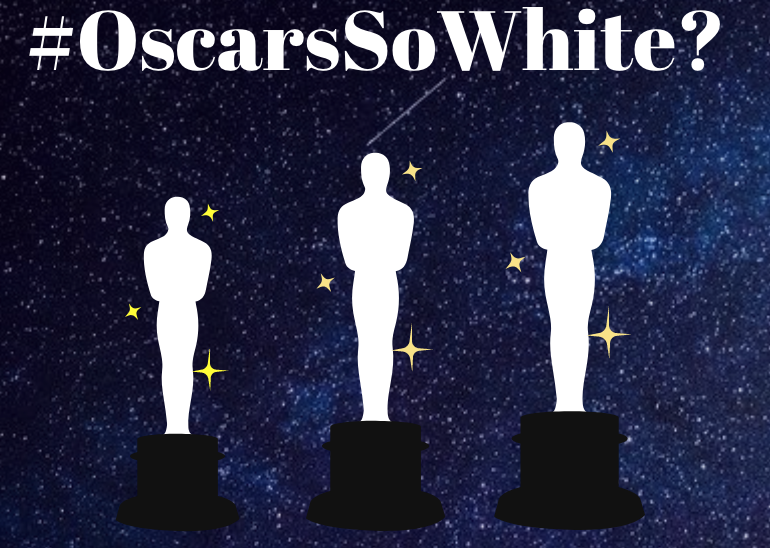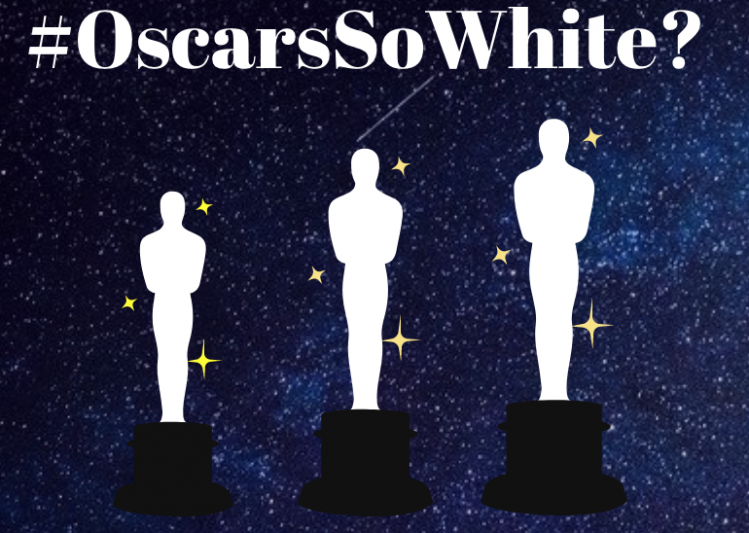27 February 2019
Country: US, Global
by: Angelo Boccato

 At first, it seemed like the 91st Academy Awards posed promising for diversity, particularly given its history of being called out for its overwhelming whiteness. Marvel Cinematic Universe’s Black Panther was nominated for several awards, as was Spike Lee’s BlackKKKlansmen, representing great leaps in recognition of African-American artists, actors and directors.
At first, it seemed like the 91st Academy Awards posed promising for diversity, particularly given its history of being called out for its overwhelming whiteness. Marvel Cinematic Universe’s Black Panther was nominated for several awards, as was Spike Lee’s BlackKKKlansmen, representing great leaps in recognition of African-American artists, actors and directors.
Two international films, Alfonso Cuaron’s Roma and Pawel Pawlikowski’s Cold War were also nominated for both Best Foreign Language Film and Best Director.
The evening started off well. Regina King won Best Supporting Actress for Barry Jenkins’ If Beale Street Could Talk, followed by Ruth E. Carter and Hannah Beachler’s victories for Black Panther’s costumes and production design.However, it took a surprising turn when Spike Lee lost the Best Picture Oscar to Peter Farrelly’s Green Book.“Every time someone is driving somewhere, I lose,” Spike Lee commented, referencing the 1990 Academy Awards when his film Do The Right Thing lost to Driving Miss Daisy. Ironically, Driving Miss Daisy follows the story of a white woman’s unlikely friendship with her Black chauffeur in the Jim Crow south, while Green Book follows that of a white, working class chauffer with a highly-acclaimed Black jazz musician during a similar period.
“They just changed the seating arrangement,” Lee said, wryly.
Despite the reversal of roles, Green Book is still full of problematic racial tropes and production. For one, as a a film based on real people, and real life events, one would hope that the filmmakers would do their best to make sure that the film emulated the actual events as closely as possible. However, neither director Peter Farrelly nor any of the other filmmakers made any attempt to contact Dr. Don Shirley’s (the real-life jazz musician) family—who then denied the close friendship between Vallelonga and Shirley that the film is based on, calling the entire plot “ a symphony of lies” during an interview published in Shadow And Act.
Meanwhile, the real-life Tony “Lip” Vallelonga’s son, Nick Vallelonga, was both a producer and a screenwriter on the film.
Perhaps not surprisingly given the clumsiness of the research, the film was chock full of historical revisionism. As Vox journalist Alissa Wilkinson points out in her article, Green Book Builds A Feel-Good Comedy Atop An Artifact of Shameful Segregation. Yikes, the film barely mentioned the actual green books, a series of books created by African-American mail carrier Victor Hugo Green that guide black travelers in selecting “safe” places to stay, or establishments to go to while traveling through the country.
“It [Green Book] leans into the always-present danger that comes with movies about racism set in the past,” Wilkinson argues. “They give audiences—particularly white ones that are eager to consider our era “post-racial or “color-blind,” or who think that Black people keep pulling out the “race card”—the ability to leave the theatre saying, Whew the 1960s were a crazy time. Glad we fixed racism!”
It is therefore striking, but not surprising that Green Book won Best Picture, over films like Roma, The Favourite, and of course, BlackKKKlansmen. No matter how much the Academy tries to get over its #OscarsSoWhite legacy, it still chose a movie that portrays racism as a matter of the past and healed through unlikely friendship, rather than an endemic, and ever-present problem. As the alternative and far-right is galvanized both in the United States and around the world, the Academy’s choice pushes a narrative of denial, ignoring Lee’s gripping footage of Charlottesville’s riots and white supremacist demonstration in favor of a “feel good” fantasy about racial reconciliation.
If race relations are the topic of choice, why is the Academy opting for Green Book instead of BlackKKKlansmen?
Despite his loss, Lee went on to keep pushing the issues of slavery and race relations in his acceptance speech for Best Adapted Screenplay, and called upon Americans to choose “love over hate” in the 2020 Presidential Elections, a call that President Trump referred to as, “a racist hit on your President.”
It is clear that both the Academy—and needless to say, the US leadership—have a long way to go before understanding the impacts of media portrayals of racism on society.

